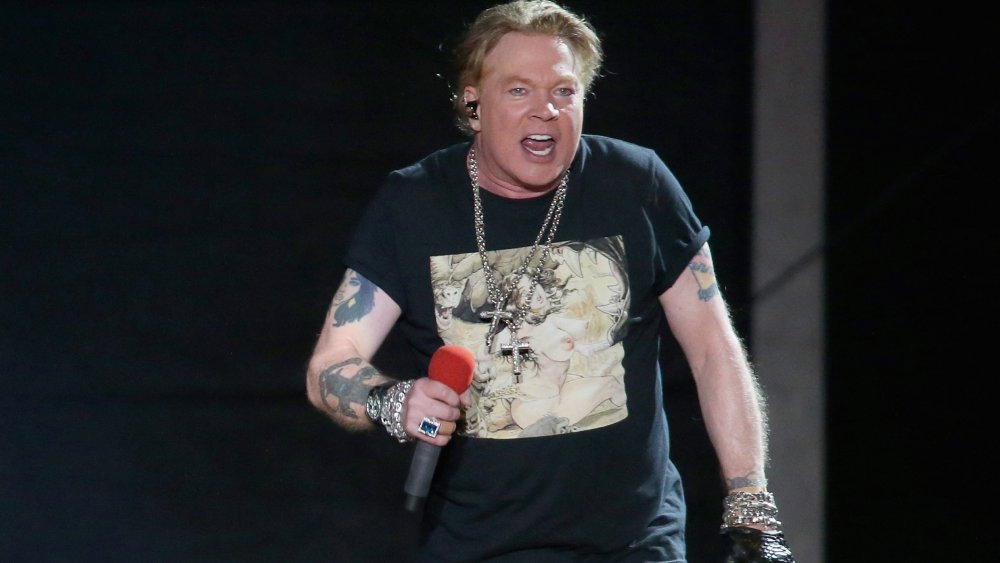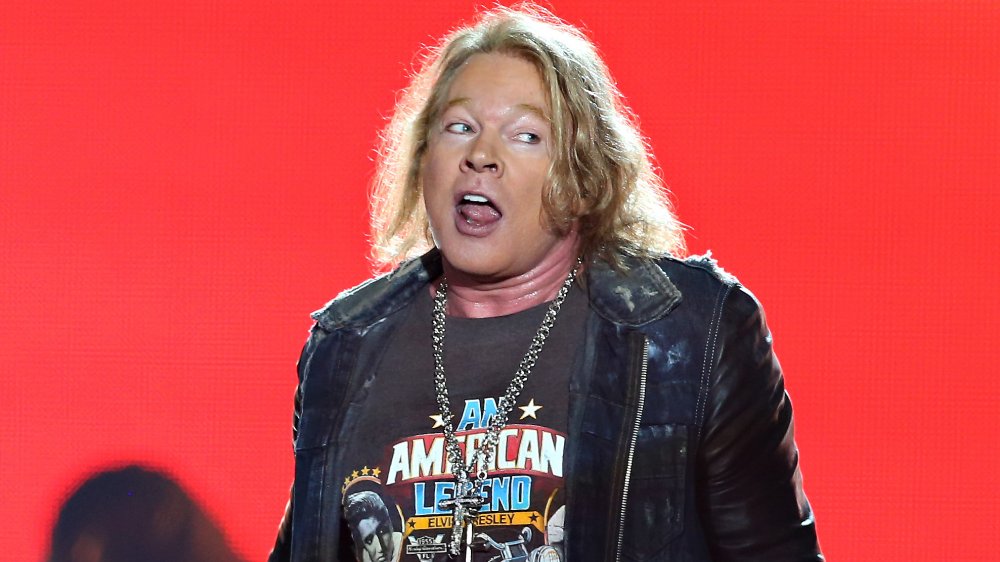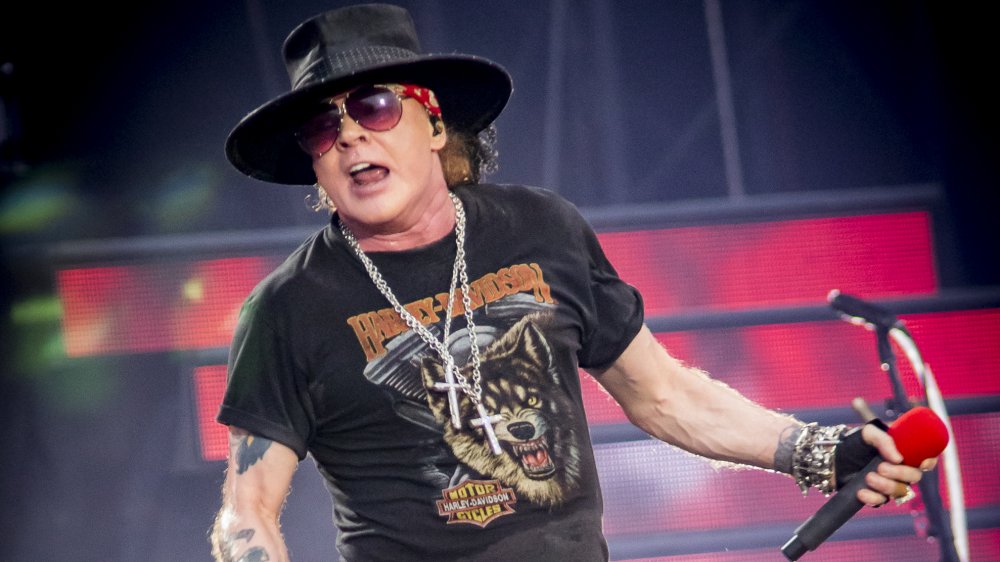You Wouldn't Want To Meet Axl Rose In Real Life
Not many people these days talk about wanting to hang out with Axl Rose. His time has come and passed for most of the younger generations. Then again, some people will hang out with, stalk, or write love letters to any celebrity they can get their hands on and, to be fair, Rose puts the "Rose" in Guns N' Roses. The fond memories of rocking out to Slash's riffs and singing along with Rose while "Mr. Brownstone" blares on the "classic rock" station could certainly set the mood.
So, sure, you want to hang out with Axl Rose, you want a night of singing duets of "Sweet Child O' Mine" or "November Rain," but that might not be worth putting up with the frontman's past or personality. Heck, you might change your mind entirely by the time you're finished reading this article. Save the duets for the bathroom mirror. It won't judge you when your voice cracks.
Charged with statutory rape
Axl Rose faced charges for statutory rape of minor due to an incident in December of 1985 at the Guns N' Roses' "Hell House." The 15-year-old girl, Michelle, and her parents pressed charges accusing Rose of having sex with the teenager. In the end, the charges were dropped because of a "lack of hard evidence," but more than one person backed the claims.
Slash, the lead guitarist of Guns N' Roses, says in his autobiography: "My memory of the events is hazy but from what I remember she had sex with Axl up in the loft. Towards the end of the night, maybe as the drugs and booze wore off, she lost her mind and freaked out intensely. Axl told her to leave and tried throwing her out."
Mike Wall, rock journalist and author of Last of the Giants: The True Story of Guns N' Roses, also back the story in his book, claiming that Rose said he was "really excited" to have gotten away with it the night the cops rolled up. Gross.
Accused of assaulting his ex-wife and his ex-fiancee
Two different lawsuits popped up in the early-mid-90s accusing Axl Rose of assault and suing for damages. One was from his former wife, Erin Everly, and the other was from his former fiancee, Stephanie Seymour. That's two lovers claiming to have been assaulted by the Guns N' Roses frontman.
Everly, who is the daughter of one of the Everly Brothers, alleged that Rose had assaulted and battered her in a number of different ways. The assault claims ranged from hitting her and spitting on her to tying her up, gagging her, and dragging her around by her hair. She also said that Rose had sexually assaulted her, forcing her to sleep with him several times, at least one of them while claiming to be in some sort of communication with extraterrestrials and spirits.
Rose and Seymour had a rough breakup, but that doesn't excuse the alleged assault. Seymour claimed that Rose had beat her up after a Christmas party because she wouldn't give back some of her clothes. Rose also sued Seymour for allegedly attacking him at that same Christmas party.
He's been accused of having some prejudices
Axl Rose has had a few inspirational quotes in his day, but he hasn't always hit the mark. The song "One In A Million" was removed from the Guns N' Roses album Appetite For Destruction due to some poor choice of language on Axl Rose's part. The song calls out "racists" at one point, which is good. Too bad the rest of the song didn't share that same anti-racist sentiment. One of the lyrics used that really derogatory word that racists call Black people — we're not going to say it here, but you know the one — as well as a call out of "immigrants." Rose commented on the racism accusations to Rolling Stone, admitting that he used the N-bomb on purpose because he "wanted to insult those particular black people." A really common thing to follow the phrase "I'm not racist, but..."
The song also used a derogatory word for homosexuals. The 'f' one. Not good. Don't use it. Of course, Rose defended his word choice once again, saying: "I was coming down on an element of gays." See, he didn't want to insult all homosexuals, only a broad, specific group of them. Rose says the important thing about the song was how "it got people to think about racism." We all have an old, "I'm not racist" uncle that Rose would probably get along with.



